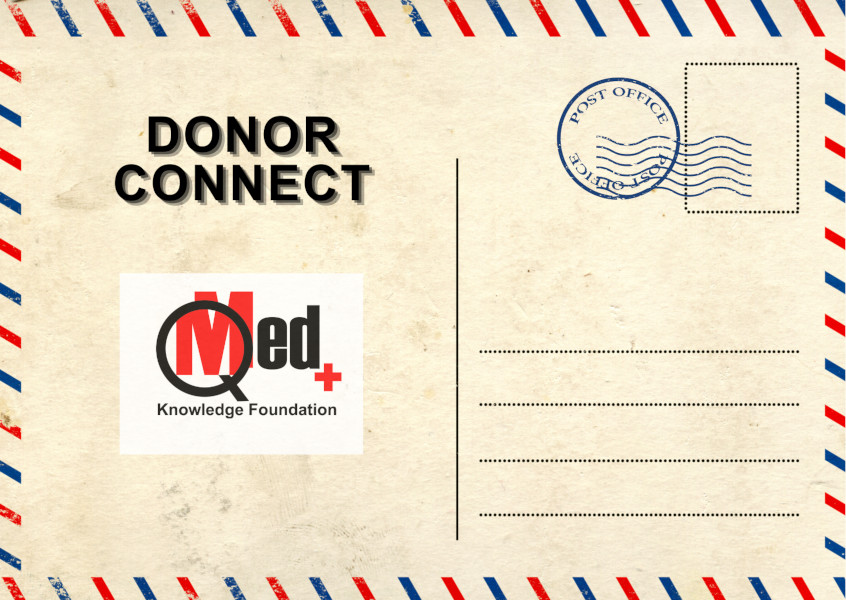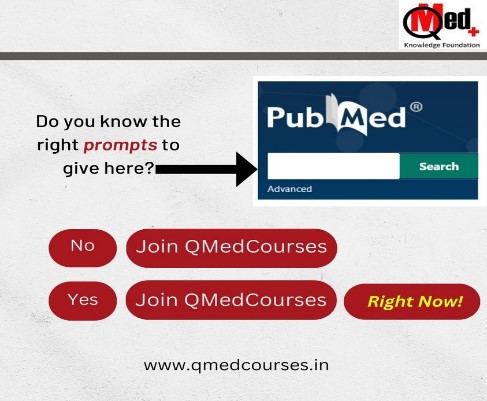Donor Connect: Our fortnightly updates to donors
Dear Donors - In case you have missed any of our mailers, you could check this page and catch up. And if you are someone who has stumbled upon this page for the first time, we invite you to join us in our journey. Give us a donation to sustain our work. Contribute your time/ expertise. Connect us with people who matter - in the National Medical Commission / ICMR or any of the Councils. Help us reach medical / nursing / dental / pharmacy and other colleges. In short - Become a part of the history we are creating! We welcome you!
July 12, 2023: THIRST For AIIMS – Getting Started
In our June 9 communication of Donor Connect, we had shared the wonderful news about getting an Educational Grant from Pfizer. With two months of planning, we are all set to conduct workshops and offer our ELearning courses to AIIMS Raipur, AIIMS Guwahati and AIIMS Kalyani. These workshops are happening in July. AIIMS Bhopal, Jodhpur, Rae Bareli and Nagpur have also given their nod, the dates being formalized are in process. We are all excited to move ahead.
This project got its name from the name I had planned for my freelancing entity that I first started with – before I started QMed. THIRST stood for “Training in Health Information Retrieval and Search Techniques” and THIRST for AIIMS sounded very catchy! Pfizer loved this name – when I mentioned it in passing and felt that we should use the same. Once again we seek your best wishes for our implementing these sessions.
QMed’s Donor Conect Page:
For long, we wanted to have the contents of our Donor Connect emails, available on our website. We accomplished that too. Do visit our page https://www.qmed.ngo/donor-connect/ – where you can see our current and old “Connects”.
QMed’s Google Reviews
We recently asked people to leave reviews about QMed on our Google Maps and quite a few have added them. Would you like to give us a review? You could do that here
Reaching out to Dental Colleges
In our June 23 communication of Donor Connect, we had mentioned about how we sent mailers to 650 medical colleges. Later we repeated the process for about 330 Dental colleges. It was much quicker this time, as we had all processes in place.
A thank you to Danamojo!
We would like to thank Danamojo for making the process for the 10BD and 10BE formalities really easy for us. Last year, soon after this became mandatory, they made it easy for us to upload the necessary files in the Income tax portal. This year, they made the mailing of the 10BE a breeze!
An image for Social media by our youngest colleague
Our new colleague Priyanka designed a lovely Social media message to promote our courses. It was a great way of telling people that they needed to join our courses to unlearn, in addition to getting new learning! (Image on the left)
We seek your wishes
Our commitment to reach out to all institutions stays strong. We are working hard at this and need your best wishes to take our mission ahead!
We invite you to join us in our journey. When you give monetarily or with your time/expertise, you are part of a history which we are creating. You could connect us to people who matter – in the National Medical Commission / ICMR and similar bodies. You could help us reach medical colleges and similar institutions. And of course – monetary donations are vital, till we reach all institutions and they help us sustain this work.
June23, 2023: Spreading Awareness of QMedCourses: A Journey of Resilience and Commitment
We hope you are doing very well. We sincerely appreciate your support for QMedCourses as we strive to enhance medical research nationwide. We would like to update you on our recent progress and the challenges we have successfully overcome.
We had started QMedCourses in June 2020. In the first two years – thanks to the pandemic, medical colleges (rightly) focused their priorities on handling the same. In fact, thanks to the situation, they had several tough decisions to make – like whether to keep students on campus or send them home! Post pandemic, they took time to get things back in order. Thanks to this situation, majority could not prioritize learning about our courses and implementing them.
A fresh start to spread awareness of QMedCourses – www.qmedcourses.in
Now as things have settled, we felt this is the best time to make an effort to reach out to every health science institution and encourage them to work with us. We need to let them know about QMedCourses – how it could help all of them save hours and do better research.
We just sent out communications by post to all 650 medical colleges in the country
To do this our Trustee Mr Sriganesh got data about 650 colleges into a spreadsheet, and we did a mailmerge exercise in order to print a letter addressed to all of them. We also sent them a one-page note about our courses and a proforma invoice, which should encourage them to act.
We discussed with the post office and got them to frank all of them and mail them out. All this involved a fair amount of work and coordination and our Trustee put his heart and soul into this. Thank you Mr Sriganesh!
We sent out emails too
We are also sending out the same communications by email with the hope that the heads of each institution will check one of them. Next, we plan to repeat the process with Dental colleges and other health sciences institutions.
We have also prepared a bunch of catchy posters to share on Social Media. We will be posting them every week.
We hope to hear from many colleges soon.
We seek your wishes
Our commitment to reach out to all institutions stays strong. We are working hard at this and need your best wishes to take our mission ahead!
June 9, 2023: QMed gets its first educational grant
It has been a couple of months since we wrote to you. In the end of March, I had mentioned about having been ill. It did take a while to regain strength, catch up on some backlog and more. However, it was a demanding time. We have had delays with our communications – our blogs and donor connect emails. My apologies. I thank you for your understanding.
Here comes a great piece of news! I am happy to share that in April, QMed got its first ever, large Education Grant! We got this grant from Pfizer. Getting our first large grant has happened after 15 years of our work. With this grant we are currently hard at work, planning workshops and offering our ELearning courses to 10 AIIMS institutions in the country.
I would like to record my appreciation and thanks to Pfizer not just for having given us this grant, but for making the effort to understand the work we do, why we do it and helping us with all processes and documentation for the grant. It is interesting to note that when they give us an Education Grant, they give us the independence to carry out the whole activity. They have no expectations from us except that we utilize the money for the purposes that we shared with them.
We have got in touch with most of the AIIMS institutions and they have started responding. Most had vacations in May, and hence there have been small delays. We will now speed up our communications and follow ups, and move ahead.
Once we start, it means travelling to ten different AIIMS institutions all over the country to conduct workshops and handling their registrations on our ELearning site. We are very excited about this
The grant money will help us for a few months ahead, and we hope that by then more institutions sign up for our courses. Pfizer has also indicated that they might support us further if we demonstrate completion of work for all ten institutions and good feedback from them.
Do send us your best wishes!
Mar 28, 2023: March updates

Date: Tuesday March 28, 2023
Category: General Update
Keywords: Institutional Subscription, QMedCourses
March has been a great month in some ways and tough in other ways. Great because we had one new institution joining us for our ELearning courses, and two renewing access for the same. The new institution to take up our courses is the Dr DY Patil Medical College from the city of Pune. The two to renew are Sri Manakula Vinayagar Medical College, Puducherry and the Amrita Institute of Medical Sciences, Kochi. We are already in conversation with them to see how we can work together to encourage maximum learning from our courses. More importantly we are stressing this year that they must throw the courses open to the undergrad medical students, as we are really convinced that this is the best stage for a student to learn these skills.
March has also been tough as several family members and I, fell ill. I had to stay away from work for most of the month. I am glad that we mastered a lot of “work from home” methods and processes during the pandemic and so I could at least execute any urgent and important functions.
I have to specifically thank my colleagues for all their support and taking on more responsibilities from me during this month. They have done a great job. I am also happy to share that this month we have had Priyanka join us at QMed. Priyanka will be taking care of a lot of digital promotion work – something much needed to get everyone in the country to learn more about our courses and enrol.
This month’s update is short and I hope to give you better stories and news next month from QMed.
Wishing you the best and thank you for being there for us!


